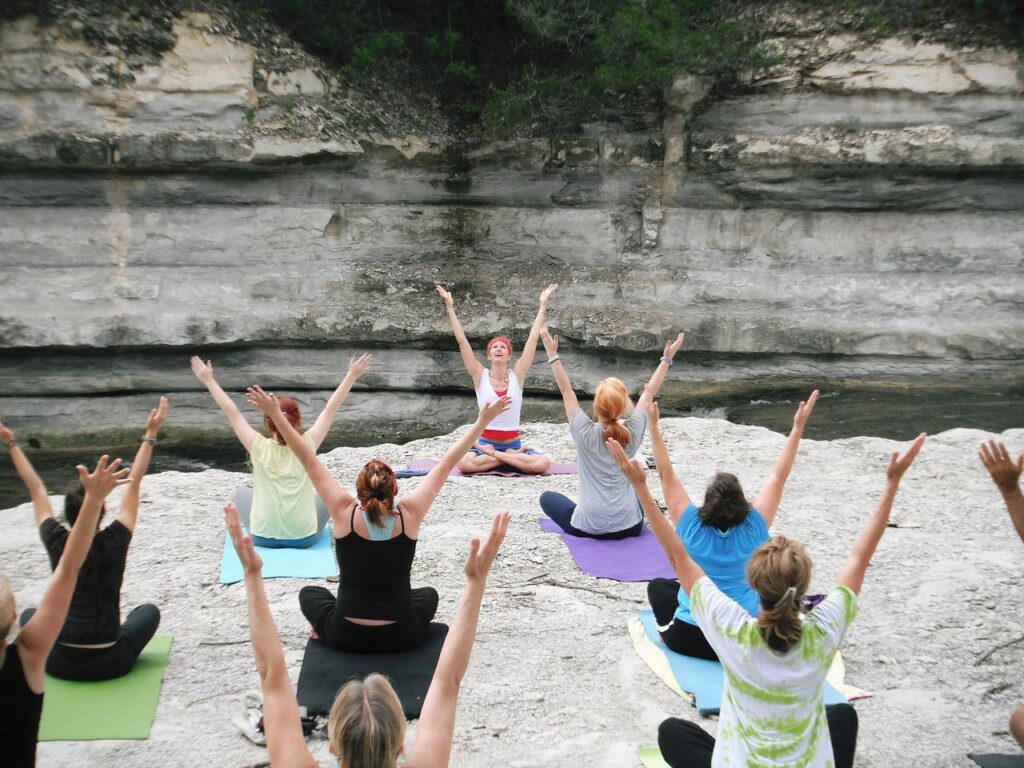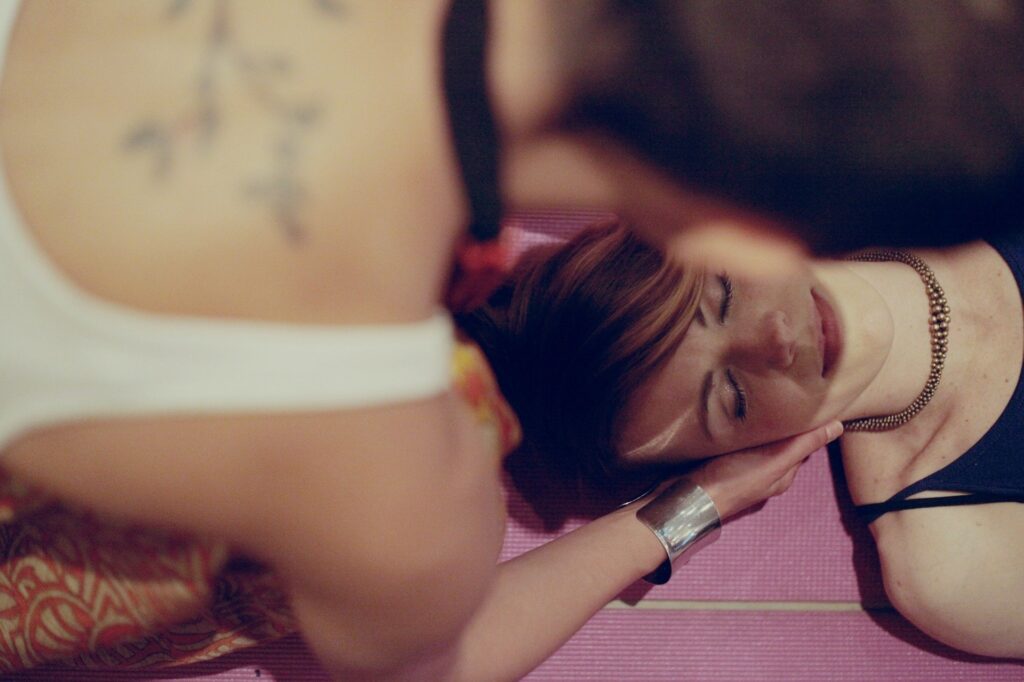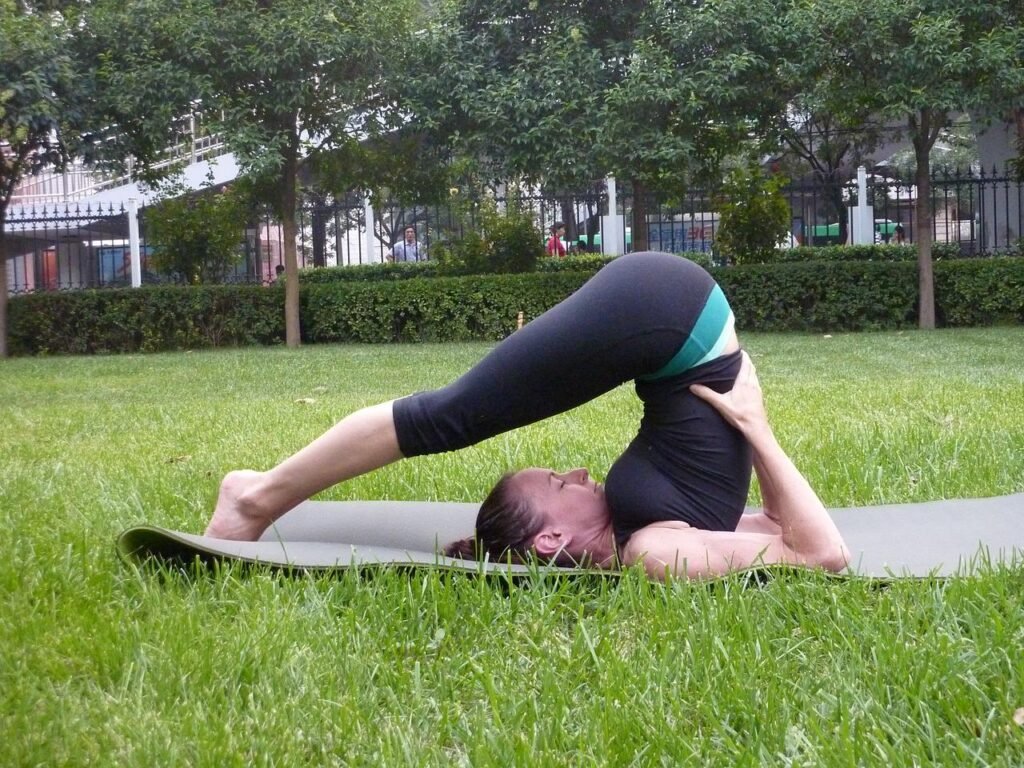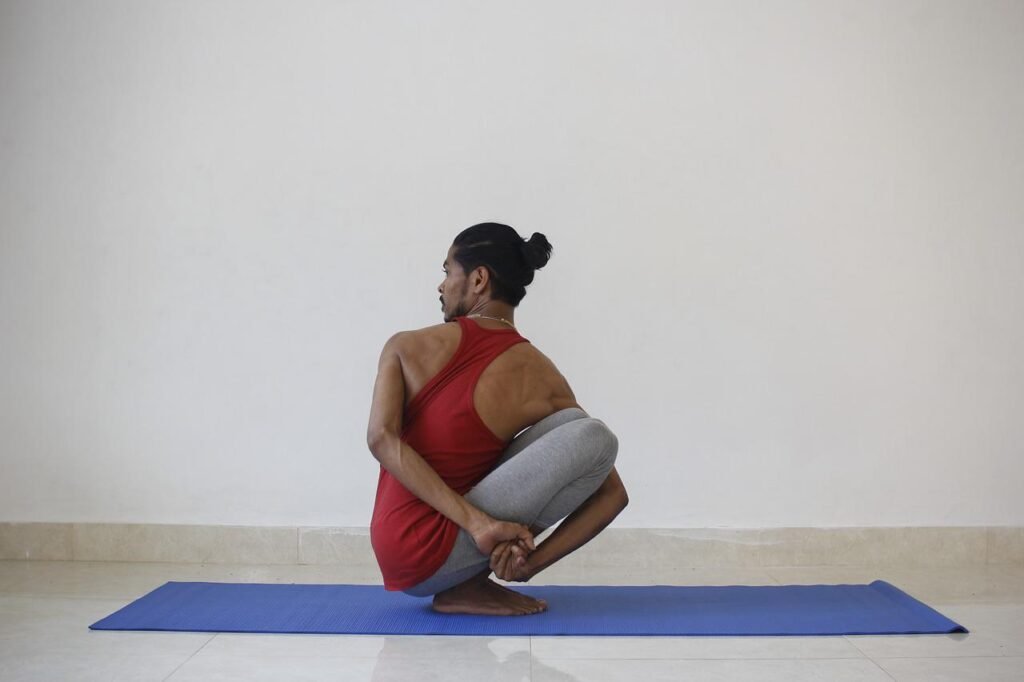1-Hatha yoga strengthens your core muscles
Doing Hatha yoga poses like plank pose and warrior I pose can help strengthen your core muscles, which include the muscles in your abdomen, sides, pelvis, and back.
Core muscles are important for overall body function since strong core muscles can help prevent lower back pain, improve your balance, and make you less likely to have a muscle injury.
Yoga can also be a good option for people who want to strengthen their core but can’t do higher intensity exercises like running or weight lifting, such as older adults or people with certain disabilities, Gothe says.
Hatha yoga strengthens your core muscles because it requires holding poses for long periods of time, which activates muscles like your abdominals and glutes.
Some of these strengthening poses include:
Boat pose
Boat pose can activate your frontal abdominal muscles.
Side plank
Side plank strengthens your oblique muscles.
Bridge pose
Bridge pose tones your back and glutes.
2-Hatha yoga helps you get a better night’s sleep
Doing Hatha yoga can reduce your levels of cortisol, a hormone that is tied to your sleep cycle. Low cortisol levels signal to your body that it’s time to sleep, so doing yoga before bed can help you fall asleep more quickly.
Some experts believe that yoga also benefits sleep because it emphasizes mindful breathing and meditation, which can help relax your mind and body before heading to bed.
A review published in 2013 in Frontiers in Psychiatry looked at three small studies on the effect of yoga on sleeping patterns. The studies used different time periods of yoga practices — some yoga classes went on for as little as 7 weeks while others continued for 6 months.
The research found that in all studies, doing yoga helped people fall asleep faster and improved their overall quality of sleep.
3-Hatha yoga may improve depression symptoms
Experts believe that Hatha yoga helps ease depression because it acts on the neurotransmitters in your brain in a similar way to antidepressants.
For example, doing yoga increases the levels of neurotransmitters like serotonin and gamma-aminobutyric acid (GABA) in your brain. GABA calms your nervous system and can help soothe anxious feelings brought on by depression, while serotonin helps to regulate your emotions.
The same 2013 review in Frontiers in Psychiatry looked at four small studies on how Hatha yoga affects depression symptoms. Results showed that people who did yoga once a week for as few as 5 weeks reported significantly lower scores on surveys measuring depression.
4-Hatha yoga can help you manage stress
While Hatha yoga can be physically demanding, it can also help you relax and de-stress. This is because doing yoga affects your nervous and endocrine systems, which control bodily functions like the release of hormones and blood pressure changes.
When you become stressed, both your cortisol levels and your blood pressure tend to rise. But a study published in 2017 in Complementary Therapies in Medicine found that people who did a Hatha yoga session before completing a stressful task had lower levels of cortisol and lower blood pressure afterward than people who did not do yoga. Participants who did Hatha yoga also reported feeling more confident about their performance in the stressful task.




